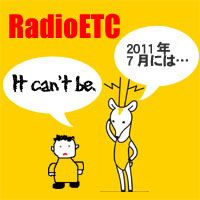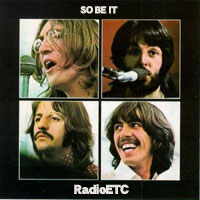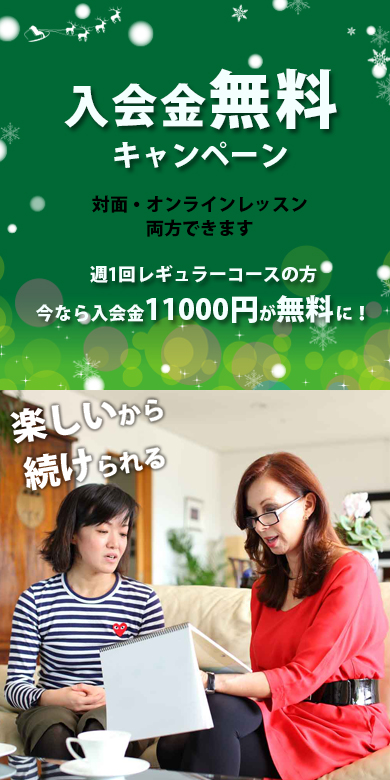Tag Archives: ダイアン先生
“ごちそうさま”は英語で?

091113.mp3 (2分48秒)
 「いただきます」に直接該当する英語は無いといわれます。では「ご馳走様」はどうでしょう?映画「レミーのおいしいレストラン」の一シーンです。料理に満足した料理評論家は、こういってテーブルをたちます。
「いただきます」に直接該当する英語は無いといわれます。では「ご馳走様」はどうでしょう?映画「レミーのおいしいレストラン」の一シーンです。料理に満足した料理評論家は、こういってテーブルをたちます。
Thank you for the meal.
さて、これは、日本語でご馳走様という時に使っても良い表現なのでしょうか?ダイアン先生(ETCマンツーマン英会話)に質問をしてみました。
■出演
・ダイアン先生(ETCマンツーマン英会話)
■聞き手
・青樹洋文
◆関連リンク
レミーのおいしいレストラン
Thank you for the meal So we don’t have an exact translation for いただきます or ごちそうさま. So when you say ごちそうさま at the end of the dinner, we just simply make a compliment. Some people will say, “Oh, that soup was delicious, thank you”. And we just say, we give a compliment and say thank you, usually.
Ego said that thank you for the meal .Maybe this is not the meaning of ごちそうさま in Japanese.
Well it is the same. I think it is almost the same as ごちそうさま and also both meanings, thank you for cooking and serving me the meal. I think this is at the end when he is tasting the food and he just stands up. And everybody is worried about what he will write, the criticism that he will write. But he doesn’t say anything and he stands up and says thank you for the meal. He made no comment at that time. In that case, yes it means ごちそうさま、or ありがとうございました simply. Yeah.
Q: Can I use this phrase for after the dinner.
Yes, yes of course. I use this often. Thank you for the meal. Especially, when you, not at your home, but when you go to somebody’s house. You are invited to dinner. Then you make a compliment and you say thank you to the host or hostess of the party.
People usually add something. “That turkey was very good. Yeah thank you for the meal. Thank you for inviting us”.
◆使用楽曲 (BGM)
“Soft” of TON from jamendo
I want to knowとI demand to know!のニュアンスの違い

I want to knowとI demand to know!のニュアンスの違い (3分38秒)
 英単語の微妙なニアンスの違いを知りたいと思いました。映画「レミーのおいしいレストラン」の一シーンです。レストランの元シェフが、あまりにもおいしいラタトゥーユを食べて驚き、キッチンのスタッフに向かってこうさけびます。ラタトゥーユを作ったのはだれだ?
英単語の微妙なニアンスの違いを知りたいと思いました。映画「レミーのおいしいレストラン」の一シーンです。レストランの元シェフが、あまりにもおいしいラタトゥーユを食べて驚き、キッチンのスタッフに向かってこうさけびます。ラタトゥーユを作ったのはだれだ?
I demand to know!
さて、このI demand to know!は、I want to knowとはどんなニュアンスの違いがあるのでしょうか?ETCのダイアン先生(ETCマンツーマン英会話)に質問してみました。。
■出演
・ダイアン先生(ETCマンツーマン英会話)
■聞き手
・青樹洋文
◆関連リンク
レミーのおいしいレストラン
I demand to know.
Q: It sounds for me a little bit very strong. So I wonder if I can use this phrase often or.
Demand means to ask for something. And as you said, I want to know, this is a softer nuance. And if you say I want to know, just simply means “tell me the information” “give me the information”. But if you say, I demand to know, and in this scene, the chef is very surprised after he says “no, it can’t be”. And He goes back into the kitchen and shouting, because he wants to know the truth. Why? What happened? And I think this is still Gusteau, right? So he was fired. Fired? Anyway, he is not the chef anymore or everybody left. So yeah he thinks it’s impossible that these two, the boy and the girl, are cooking such delicious food. So he asks strongly. Demand means to ask strongly for something. Require or.
Q: It doesn’t sound rude?
Well, it is a strong way of saying something. So if You demands for something, you, we usually don’t use this in… You can use it in regular conversation too, of course Demand is often used. But it has a stronger feeling. So if something is wrong, then you say I demand to know.
Demand shows you that you have a right for something. So what would be a good example? If you say, I want to know what’s going on, that means you just have to get the information, people have to explain to you. But if you say I demand to know, I demand to know what’s going on, because it’s so noisy and everything. For example, here you, there is going to be a new building built pretty soon. And if it is too noisy, for example, the construction is too noisy and I have no information before that. Then I can complain and say I demand to know why you are making so much noise. Please explain to me. But if you say I want to know that means you know some information maybe, but I want to know when the construction will start. Just for a simple information.
◆使用楽曲 (BGM)
“Soft” of TON from jamendo
“It can’t be”の意味は?

“It can’t be”の意味は? (3分24秒)
 簡単な単語で話される英会話ほど、実はその意味がわかりにくいという経験はありませんか?映画「レミーのおいしいレストラン」の一シーンです。元シェフが、ラタトゥーユを食べて、料理評論家さえもうならせてしまうその美味しさに驚き、こう言います。
簡単な単語で話される英会話ほど、実はその意味がわかりにくいという経験はありませんか?映画「レミーのおいしいレストラン」の一シーンです。元シェフが、ラタトゥーユを食べて、料理評論家さえもうならせてしまうその美味しさに驚き、こう言います。
It can’t be.
さて、これはどんな意味なのでしょうか。ダイアン先生(ETCマンツーマン英会話)に質問してみました。
■出演
・ダイアン先生(ETCマンツーマン英会話)
■聞き手
・青樹洋文
◆関連リンク
レミーのおいしいレストラン
No, it can’t be.
I thought this is a part of a sentence.
Ah, you mean short form of a sentence? Hmm, basically maybe yes. For example, we say it can’t be true. It can’t be you. Yeah. Sometimes we have an object there. But it’s often used as a phrase showing surprise. We don’t need to put in the object. “It can’t be” is fine.
So I can use only this sentence.
Yeah, only this phrase. Yeah.
To show surprise, it shows you that you are very surprised, “it can’t be”.
In Japanese, it’s like “ありえない”, kind of thing.
Q: Is that similar to “it is impossible”? No?
No, impossible is a little different. When you say “it’s impossible”, that means it’s difficult to do something or I can not do it. It’s impossible. But when you say “it can’t be”, as I said, like “it can’t be true”, it doesn’t mean it’s impossible. It’s something that is not truth like a dream, something like that.
Yes, showing, it’s an expression of surprise. Sometimes we use this and the object is like “it can’t be you” “ it can’t be him”. We sometimes have a person there. But in that case, it’s like if I met a friend after a long time of absence, of course as we grow older, people change. But when I meet her, I say, and if she changed a lot, then I can say “it can’t be you”.
It means that she or he was changed.
Not, really that, not really changing. But it’s been a long absence. There is a little change. But I, it’s unbelievable for me to meet that person again.
I see.
It shows surprise. “It can’t be you” means “I can’t believe you are here now and I’m meeting you”.
◆使用楽曲 (BGM)
“Soft” of TON from jamendo
“So be it.”の意味は?

“So be it.”の意味は? (3分14秒)
 簡単な単語で話される英会話ほど、実はその意味がわかりにくいという経験はありませんか?映画「レミーのおいしいレストラン」での一シーンです。シェフにお会いになるのは、他の客さまが皆お帰りになるまでお待ちくださいとスタッフに言われた料理評論家がこういいます。
簡単な単語で話される英会話ほど、実はその意味がわかりにくいという経験はありませんか?映画「レミーのおいしいレストラン」での一シーンです。シェフにお会いになるのは、他の客さまが皆お帰りになるまでお待ちくださいとスタッフに言われた料理評論家がこういいます。
So be it.
さて、これはどんな意味なのでしょうか。
ダイアン先生(ETCマンツーマン英会話)に質問してみました。
■出演
・ダイアン先生(ETCマンツーマン英会話)
■聞き手
・青樹洋文
◆関連リンク
レミーのおいしいレストラン
So be it means “OK, I shall wait.”
Is it some short phrase?
Yeah, I think the more formal way of saying would be “let it be so”. That is the phrase maybe. But we say “so be it”, the subject and the verb is opposite, right? The subject comes later. This is the same as the phrase like “so am I”. When you agree to a sentence before that, for example, “I like cats”, “so do I”. This is a way of agreeing to something. We switch. We change the order. Usually when you agree, you can say “I like cats”, “I like a cat too”, right? We just shorten the form and say in conversation “me too”, but “I do too”. That’s the short form. But when you use so in the front, at the beginning of the sentence, then we change the order. “So am I”. Or “so do I”. “So be it”. “Let it be so”, or “let it be that I will wait”.
Q: I recognized this is a very short phrase. In usual conversation, if someone say “so be it”, maybe I can’t understand what he is saying. Yes, I will wait.
I will wait or I will do as you say or this is agreeing the sentence before. And as I said, the agreeing to some sentence before that, you have to use “so am I”, or “so do I”. But it depends on the sentence before, right? “I like cats”. That’s a regular verb. The helping verb would be “do”, right? Do you like. So in agreeing sentences, we say so do I. Are you a students? You say “yes, I am”. So then you say “so am I, I am a student, too”.
So it is a same group.
Yes, it’s the same group. And “so be it” would be like “it will be as you say”. “I will wait as you say”.
◆使用楽曲 (BGM)
“Soft” of TON from jamendo
claimの意味は「苦情を言う」だけ?

claimの意味は「苦情を言う」だけ? (5分27秒)

映画「レミーのおいしいレストラン」に登場するシェフ、グストーのモットーはAnyone can cook. 誰にでもチャンスはあるという勇気付けられるメッセージです。映画のなかではグストーのもとで働くコックがこんなことを言っています。How can we claim to represent the name of Gusteau, if we don’t uphold his most cherished belief. さてこのclaimという単語はどんな意味なのでしょう?
Hum, well, claim has many meanings actually. One claim that you are talking about means to complain. But the baggage claim is different. Baggage claim means the place where you go and get and you announce that this is your baggage. That’s where you are going to get your baggage. So you have to state that this is your baggage. That’s a different meaning. That’s two meanings. In this case, claim means, hum, how can we stress, or how can we tell everyone that we are Gusteu, that we are representatives, or we are representing, we are the cook, we are working for Gusteau. How can we insist. Maybe it’s better.
How can we insist that we are working for Gusteau or if we don’t promise or, we don’t keep up with his belief.
◆使用楽曲 (BGM)
“Soft” of TON from jamendo
underとunderneathのニアンスの違いは?

underとunderneathのニアンスの違いは? (2分30秒)

映画「レミーのおいしいレストラン」の主人公はネズミです。パリの夜景を眺めながらこう言います。Paris? All this time, I’ve been underneath Paris? (僕はずっとパリの地下にいたんだ) さて、このunderneathをunderに置き換えることはできるのでしょうか。ダイアン先生(ETCマンツーマン英会話)にニアンスの違いを質問してみました。
■出演
・ダイアン先生(ETCマンツーマン英会話)
■聞き手
・青樹洋文
◆関連リンク
レミーのおいしいレストラン
When we use under, usually it means for example under the table. Then it’s just simply below something. Then you can see maybe. Or when we say underneath then sometimes it means it is hidden maybe. And in this case, you see, he is a mouse. So he’s been living in the maybe sewage or in the gutter or something. So in his case, he is talking about a land above the world he knew underground. So then of course the mouse, mice are usually hidden somewhere underground.
Q: So underneath is that I can’t see
Usually. Yeah, usually. Of course we can use it the same, but when you say underneath, it usually means something is hidden. So for example, if you lose your keys or something, is it underneath the cushion? As you can search it and pick it up, maybe it’s under there.
For example my cat likes to hide under the bed covering, my cat is underneath the bed spread.
Q: Bed spread? What does bed spread means?
Bed covering.
◆使用楽曲 (BGM)
“Soft” of TON from jamendo
toastの日本語訳はトーストでいいの?

toastの日本語訳はトーストでいいの? (2分47秒)

映画「レミーのおいしいレストラン」は、パリで一番といわれるシェフ、グストーのレストランが舞台です。映画ではこんなふうに紹介されています。Gisteau’s restaurant is the toast of Paris. さて、このtoastは朝食に食べるあのトーストパンのことなのでしょうか。どうも違う意味がありそうです。ダイアン先生(ETCマンツーマン英会話)に質問してみました。
■出演
・ダイアン先生(ETCマンツーマン英会話)
■聞き手
・青樹洋文
◆関連リンク
レミーのおいしいレストラン
Yes, toast has an another meaning. it means KAMPAI. Toast for something means you KAMPAI. Yeah. So in this case the toast of Paris means it’s something great that everybody always cheers.
Q: Is the spelling same?
Yes, the spelling is the same. Yeah. It’s not from bread. It’s not bread, but it comes from when you do KAMPAI. Yeah. You say toast or cheers. Yeah. Or we make a sentence that we say you toast to something, you toast for something.
Q: What does it means?
It’s KAMPAI for something.
Q: Is that common to say like this? Toast of Paris?
Or in this case it is comparing or it’s making, it means the restaurant is the pride, or something great in Paris, is No.1 in Paris. Usually we don’t, when we toast to something, we don’t say that, but.
Q: Can I replace toast by any other words?
Oh, it’s not natural, maybe. It doesn’t sounds natural. But maybe you can say the restraint is the pride in Paris, is our pride of Paris, is the greatest or, is the greatest of Paris.
Q: I’ve been just confused, because this is the story of restaurant, so..
OK. So it is a piece of toast? No. It’s not food.
◆使用楽曲 (BGM)
“Soft” of TON from jamendo
フランス人の話す英語

フランス人の話す英語 (1分50秒)

映画「レミーのおいしいレストラン」の舞台はパリ。ダイアン先生(ETCマンツーマン英会話)によると登場人物の何人かはフランス語なまりの英語を話しているそうです。それははどのようなものなのでしょうか?
■出演
・ダイアン先生(ETCマンツーマン英会話)
■聞き手
・青樹洋文
◆関連リンク
レミーのおいしいレストラン
Q: Actually, they are all French, right?
Yes, yes. It takes the place in Paris, so they are speaking English, but they have a French accent.
Q; Could explain what is the French accent?
Well, one of them was at the next question, yeah, harsh. They don’t pronounce h. So, hum, Mr, what is his name, the chief chef, he was saying arsh instead of harsh. Or, there was another one. Yeah. Dangerous. Dangerous.
Q: So it’s very close to French.
Yes, yes. The way of pronouncing.
Q: Oh, it’s very interesting. So they can’t pronounce H sound, right?
Hum, many of the words are not, H is not pronounced in French. So many people who speak English with the French accent sometimes skip H, so then it becomes not hungry but ungry. So you don’t know if you are angry, or if you are hungry.
◆使用楽曲 (BGM)
“Soft” of TON from jamendo


















